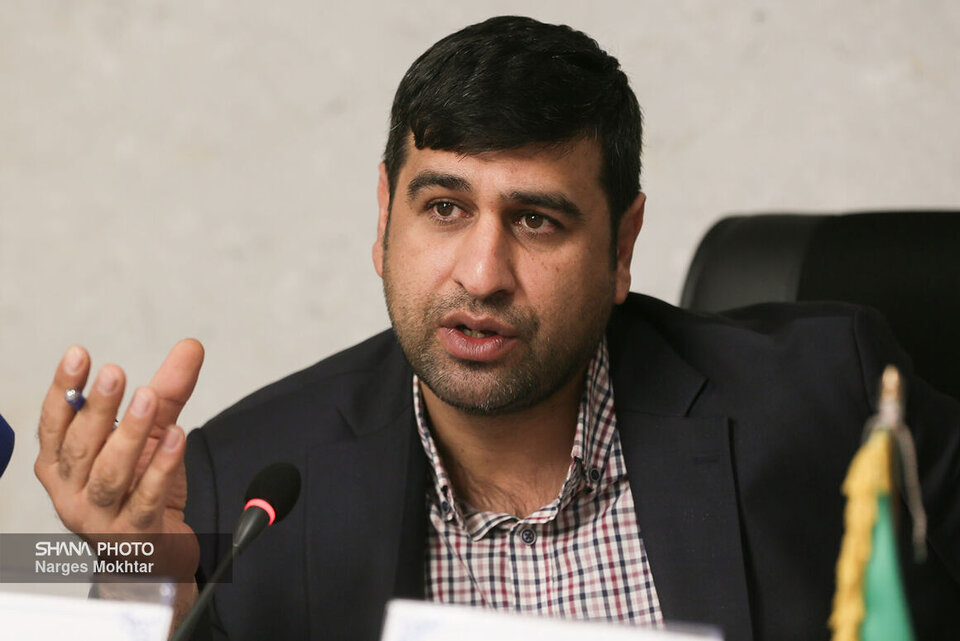In an interview with Shana, Mohammad Sadegh Jokar said: “The Chinese believe that the West is entering the stage of challenging them, and a clear example of this can be found in the American national security document, which was published in March 2021 to October 2022, and the Joe Biden administration has considered China and Russia as its strategic threats. On the other hand, in the last two years, the US government has increased the fields of conflict with the Chinese with the Taiwan issue and the transfer of technology to this country.”
He added: “The western system has imposed many restrictions on China to become an obstacle to the progress of this country's goals, including in high-tech technologies and the field of energy. In some cases, they are in tune with each other.”
The IIES head continued: “For example, China is eager to be centered with the Americans in the energy transition, which can be considered a revolutionary transition of renewables, because the Chinese themselves are both importers of fossil fuels and high consumers of them. This issue causes China and Iran to find mutual need for each other”.
Tensions between China and the West
Jokar clarified: “China has followed two key components in its interaction with Iran since the past; first, the risk of cooperation with Iran should be reduced by signing an international agreement such as the JCPOA, so that they can cooperate with us without Western pressure, or increase the risk of their cooperation with the West. In any case, it seems that the Chinese are now reaching a stage of tension with the Western system, a clear example of which is the tension between the Western Axis and Russia. Right now, Russia considers its opposite democratic rail to be the Chinese side.”
He said: “The Chinese have long-term planning cooperation with some countries in the supply of energy production, such as Saudi Arabia, due to various energy security concerns over Iran”.
The head of the IIES, stating that China emphasizes renewable energies in its economic road belt model (One Belt One Road) and is developing a network of regional nodes for this belt, said: “In the analytical space of the country's media recently it is considered as if the Chinese are playing a game of winning and losing in the Middle East and acting to the detriment of other countries. In other words, China seeks to network the nodes of its economic belt and road model, and they give weight to the countries on this path, so the cooperation of the Chinese with the Emirates is not necessarily against China's cooperation with Saudi Arabia, even they are trying to make sure that regional differences do not damage cooperation of this network and nodes.”
Referring to the recent visit of the President of Iran to China and the Chinese side's speech focusing on Iran's sovereignty over the three islands to compensate for the words of the Chinese officials in the United Arab Emirates, Jokar said: "The Chinese try not to interfere in regional tensions and see themselves as a mediator of stability. China's view of the Islamic Republic of Iran is that we can have better interactions with them than some other countries in terms of depth and volume. China knows very well that countries like Saudi Arabia are not separated from the Western system, so they have a mainly economic view not energy interactions with Saudi Arabia.”
He stated: “Chinese people in their think tanks believe that the behavior of Iranians inside their country towards China is sinusoidal in some cases. In other words, the country's main actors have not yet given them the assurance that Iran's cooperation with this country is stable or not; because the previous government was less willing to cooperate with the Chinese side, but the 13th administration is trying to show the Chinese that Iran does not look at it from a technical point of view (instrumental point of view). For example, if the JCPOA is signed, we will leave the Chinese side and this can help this country to what extent it can cooperate with Iran in its decision-making system.”
Chinese view, not colonial
The IIES head also emphasized: “In the previous administration, it was stated that China does not invest extensively in Iran and their approaches towards us Iranians are instrumental and even colonial, while they have announced that our approach in the third period of international interactions is stable relations. With countries, it is based on the benefit of the parties, preservation of the environment and justice.”
Jokar continued: “There is an expectation in Iran that if the Chinese want to improve public opinion in Iran, they should have longer-term interactions with us. Right now, in addition to gaining a greater share of the Chinese oil market, our priority is acquiring technology.”
He pointed out that in the document of China's 14th economic plan for the period from 2021 to 2025, it is sought that if we want to export, we should produce and export it in the same target country, and said: “China believes in this plan that commodity-oriented exports will increase dependency on the tariff systems of importing countries like the US, because importers of Chinese products can always use the tool of tariffs to blackmail Chinese companies economically.”


Your Comment